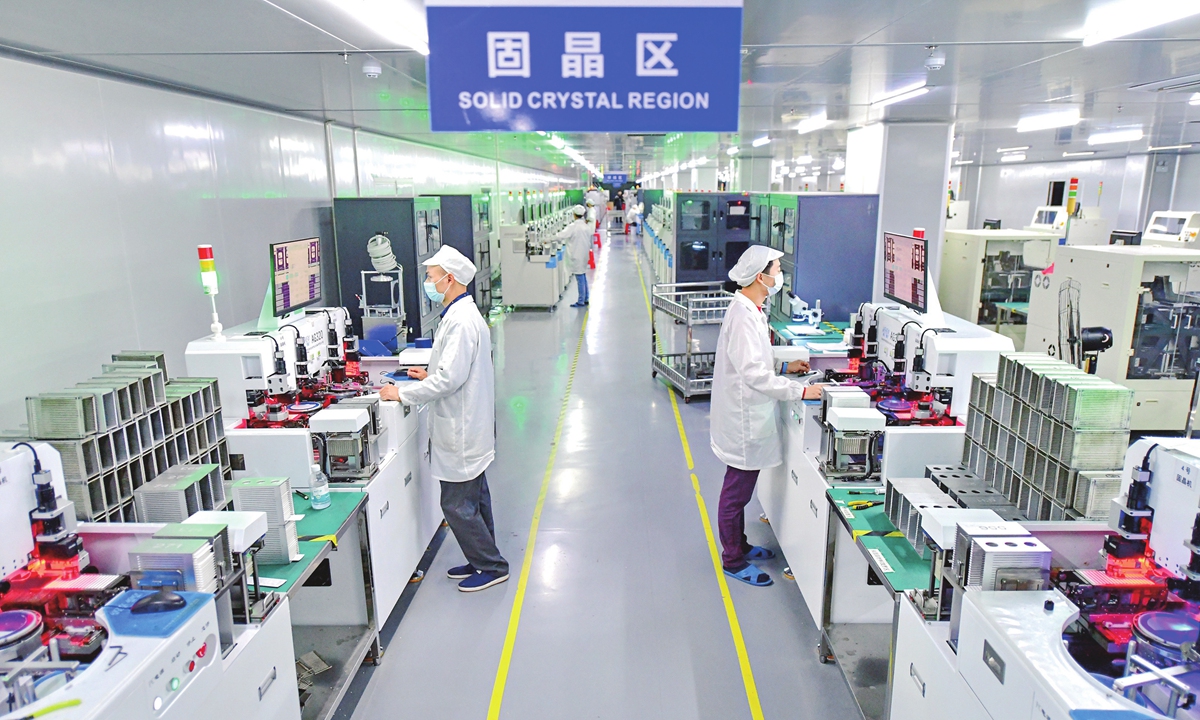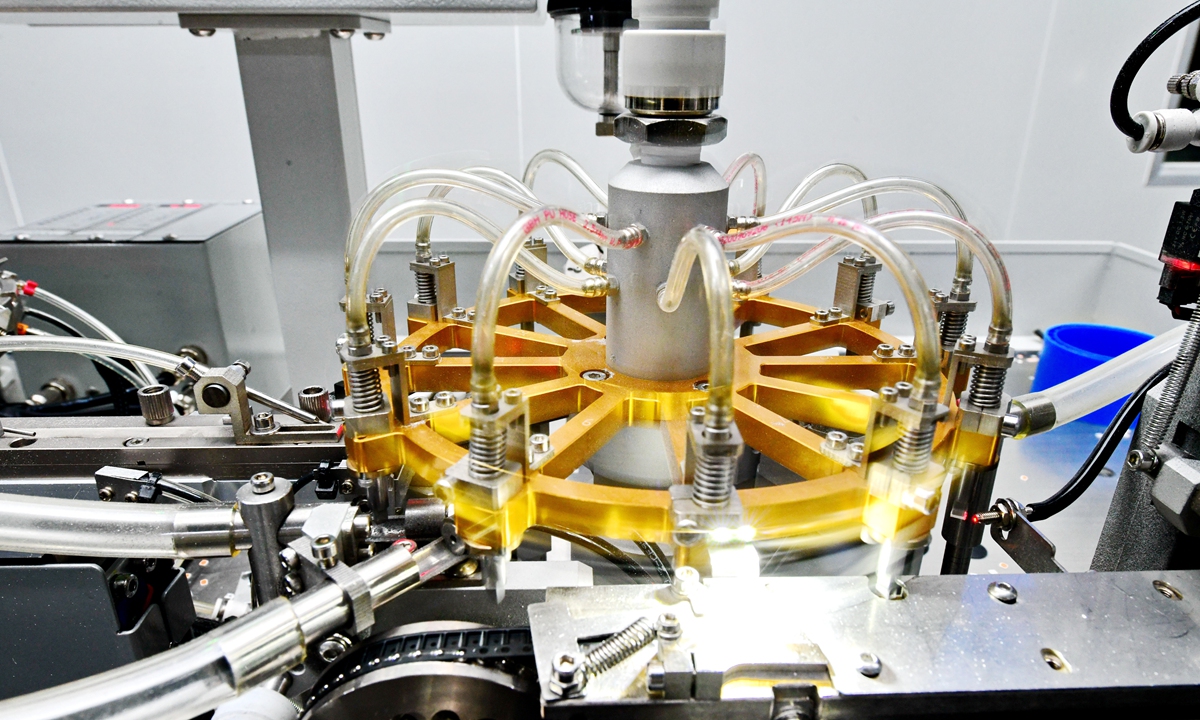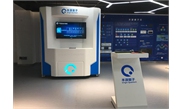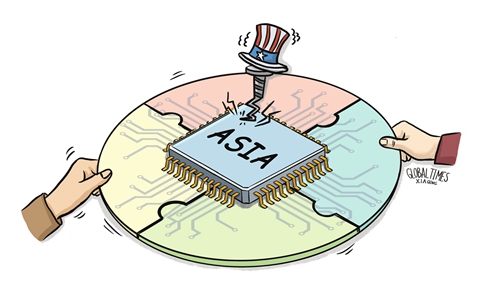China develops key equipment for chip manufacturing
The ‘scalpel’ function of MLLAS-100 laser annealer can accurately remove 'defects'

Workers check semiconductor products at a manufacturing factory in Ganzhou, East China's Jiangxi Province on November 24,2022. Photo: VCG
China's first MLLAS-100 laser annealer dedicated to quantum chip production has been successfully developed, a move aimed at solving instability and increasing production quality when the number of quantum bits increase, according to Chinese media reports.
Functioning as a "scalpel", the MLLAS-100 laser annealer can accurately remove "defects" in quantum chips and enhance chips performance when expanding to multiple bits, stdaily.com reported on Wednesday.
The laser annealer is independently researched and developed by Origin Quantum Computing Technology Co based in Hefei, East China's Anhui Province, and can reach a hundred nanometer ultra-high positioning accuracy in a bid to achieve the laser annealing in a single quantum bit.
The laser anneal technique can directionally control the frequency parameters of modified quantum bits, and solve the problem of qubit frequency crowding in multi-bit expansion.
The laser annealer is like a "scalpel" for a doctor performing surgery, which can be used to improve the production quality of quantum chips by solving targeted problems following issues detected by the nondestructive probe electrical measurement platform, said Jia Zhilong, deputy director of Anhui Quantum Computing Engineering Research Center.
Named NDPT-100, China's first nondestructive probe electrical measurement platform was launched by Origin Quantum in December, which will be used in production of chips for quantum computers. It can realize fast and accurate measurement of quantum bit resistance, identify the quality of quantum chips with almost zero damage, according to the report.
Just like the lithography machine is a basic industrial machine for the manufacturing of traditional chips, the instrument is one of the most important industrial machines for quantum chip manufacturing, which will significantly shorten the R&D cycle of quantum chips while improving quality, Jia said in a previous interview.
The nondestructive probe electrical measurement platform is dedicated to find problem while the laser annealer aims to solve the issue during the production, and their cooperation will be able to manufacture higher quality quantum chips, Jia said, adding that the laser annealer can also be adopted in other fields such as integrated circuit and has been put into use in the country's first quantum chip production line, also launched by the company.

Manufacturing equipment of semiconductor products Photo: VCG
Xue Qikun, a researcher at the Chinese Academy of Sciences said there is no generational gap between China and the US or other developed countries in the development of the most advanced quantum chips.
"This is because no country in the world has really developed a practical universal quantum computer and everyone is testing it.
As Chinese scientists are not limited in the research area, there is not a big gap between China and foreign countries in basic research and application technology to explore quantum computers," Xue told the Global Times on Wednesday during an exclusive interview at the China International Big Data Industry Expo 2021 held in Guiyang, Southwest China's Guizhou Province.
Xue said that the development of quantum computers for specific applications is something that may be studied in the next 5 to 10 years.
China has improved its basic research level since the reform and opening-up 40 years ago, Xue said.
However, Xue noted that Chinese enterprises have not invested enough in quantum computing compared with foreign giants, such as Google. The industry will be more efficient if enterprises join in. China, as a big economy, should have both the upstream and downstream of the [quantum] industrial chain.
Global Times



